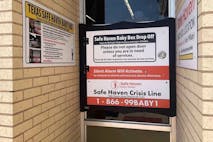
'Opt-in' vs 'opt-out': Why abortion training is not 'essential' for medical residents
Nancy Flanders
·
Politics
Cassy Cooke
·
Issues
Angeline Tan
·
International
Cassy Cooke
·
International
Bridget Sielicki
·
Human Interest
Bridget Sielicki
·
400k+ Readers Strong & Growing
News & Commentary from
A Pro-Life Perspective
As the news arm of Live Action, we educate the public and advocate for preborn rights by providing timely, accurate, and compelling news and stories about the pro-life movement.

Politics
Cassy Cooke
·
Issues
Angeline Tan
·
International
Cassy Cooke
·
International
Bridget Sielicki
·
Human Interest
Bridget Sielicki
·
Guest Column
Melina Nicole
·
Politics
Nancy Flanders
·
International
Cassy Cooke
·
International
Bridget Sielicki
·
Analysis
Cassy Cooke
·
Politics
Bridget Sielicki
·
Issues
Bridget Sielicki
·